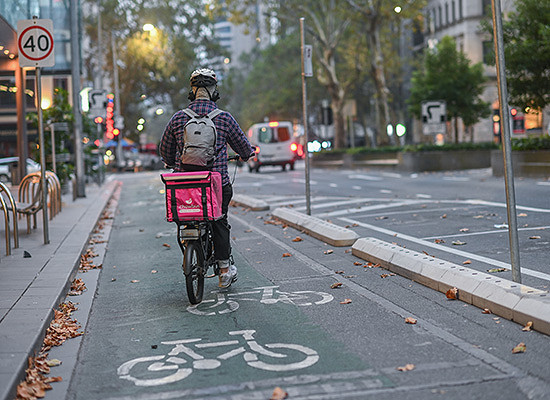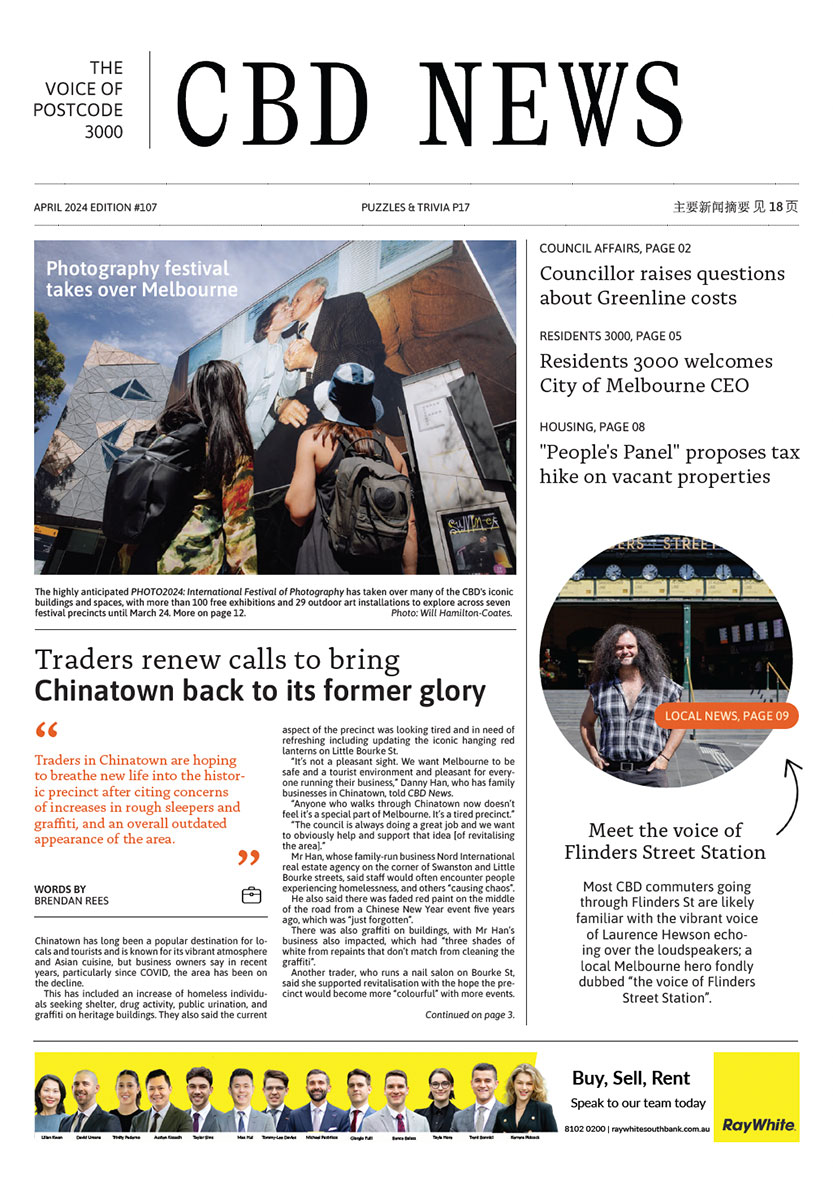Trader’s feel the pinch as bike lanes impact business
Frustration is growing among CBD traders who say new protected bike lanes are hurting their businesses as a lack of parking turns customers away.
Small businesses have reignited their concerns over the new protected bike lanes being trialled on Exhibition St, which has reduced the amount of motorist lanes and in turn parking space.
“It’s badly affected our trade,” a café worker said. “Customers are complaining they can’t stop the car to grab a quick coffee because they can’t find a parking spot.”
“This is just another hurdle. Our takings our down 95 per cent to what they were pre-COVID.”
“I’m all for cycling to work and saving the environment but at the end of the day, we’re making concessions for cyclists making it more difficult for others.”
“They certainly don’t pay any form of road tax or road registration fees, so I don’t understand why all these concessions are being given to them,” the worker said, requesting anonymity.
“I’ve also seen a couple of incidents where ambulances have had to pull into laneways rather than pull directly in front of the building.”
“Council hasn’t even come to consult with us to ask us our opinion.”
Jayson Nguyen, who runs Euroluce lighting store, said clients were also struggling to find a park on weekdays to visit his showroom.
“Sometimes they’re driving around for a good 15 to 20 minutes or half an hour until they can find parking,” he said, adding he would sometimes have to carry bulky items to customers’ cars quite a distance away.
The City of Melbourne has sought to deliver 40 kilometres of protected lanes and pedestrian improvements across the city, saying the project is critical in accommodating the rising number of cyclists – which it found had jumped 300 per cent in the past two years.
“With more people choosing to ride – and now scoot – we have a duty to provide safe bike lane infrastructure, otherwise there will be inevitable accidents with tragic consequences for all road users,” Lord Mayor Sally Capp said.
She said the council had commissioned an independent transport review, which was undertaken by auditing giant Deloitte, who supported council’s work to build protected bike lanes and forecast bike trips to the CBD which would exceed pre-COVID levels.
However, Cr Capp added, “We know there are pressure points in traffic flow throughout the city and we’re constantly reviewing how best to manage those. In 2021, we made more than 60 adjustments to alleviate that pressure.”
According to council data in February, commuter bike volumes on protected bike lanes around the CBD had jumped 80 per cent month-on-month.
However, Small Business Australia executive director Bill Lang told CBD News a lot of road space for motorists was going to waste with cyclists contributing little to the city’s economic recovery.
“Customers and cash flow are the lifeblood of any business and more of these permanent bicycle lanes are the equivalent of having a high cholesterol reading stopping the blood flowing,” he said.
He said the council’s parking revenue was also under “significant pressure because they’ve got rid of a whole bunch of parks, therefore they’ve increased the cost of parking per hour for the parks that are left.”
“So, what does that do to attract people [to the city] versus going to Doncaster Westfield Shopping Centre?”
A Victorian Automotive Chamber of Commerce spokesperson was critical of the bike lanes which appeared to be servicing a small percentage of commuters.
“Solving Melbourne’s mobility issues requires a multi-pronged approach, and bicycles play a part in a good outcome,” he said, but added, “at any one time, if one were to look at a bike lane alongside a road what you would see is a small smattering of bicycles traveling freely next to a road with a long line of stationary cars on it.”
“One should never forget who pays for roads. It’s motorists – all motorists. So why inconvenience millions of them for the sake of a small number of cyclists?”
“Perhaps the fairest way to deal with this situation is to have bicyclists pay for the roads and lanes they use – just like motorists do – in the form of a road user tax or bicycle registration and insurance scheme.”
“Another unfair aspect that annoys motorists is that some cyclists routinely ignore designated bike lanes and use footpaths and roads instead. Bicycling is a legitimate, eco-friendly way to get around, but cyclists can’t have it both ways.”
An AusCycling spokesperson said protected bike lanes were essential for people to be safe and feel safe while riding their bikes.
“The booming number of bike riders during lockdown and the popularity of new bike lanes has demonstrated that many Australians want to ride their bikes to work, school or the shops, and they will do so if they are given safe places to ride,” the spokesperson said.
“CBD bike lanes will deliver multiple benefits to Melbourne from reduced congestion and parking pressure to less pollution and the many health benefits for those who ride.”
A Bicycle Network spokesman said it strongly believed building safer places for people to ride was an important step in any modern city’s development.
RACV general manager of mobility Elizabeth Kim said evidence had shown that dedicated bike lanes and paths helped make cycling “a feasible, affordable and sustainable transport option for many.”
“The Department of Transport data shows that bike lanes can move three times as many people as one car traffic lane and can help ease congestion and pollution,” she said.
“The removal of parking bays for the bike lanes represents only one per cent of the 23,000 on-street car parks across the city.
“Victoria now has an opportunity to develop cycling infrastructure thoughtfully to help ease congestion and make it easier and safer to ride.” •

“Swanston Triangle” to undergo green renewal



 Download the Latest Edition
Download the Latest Edition